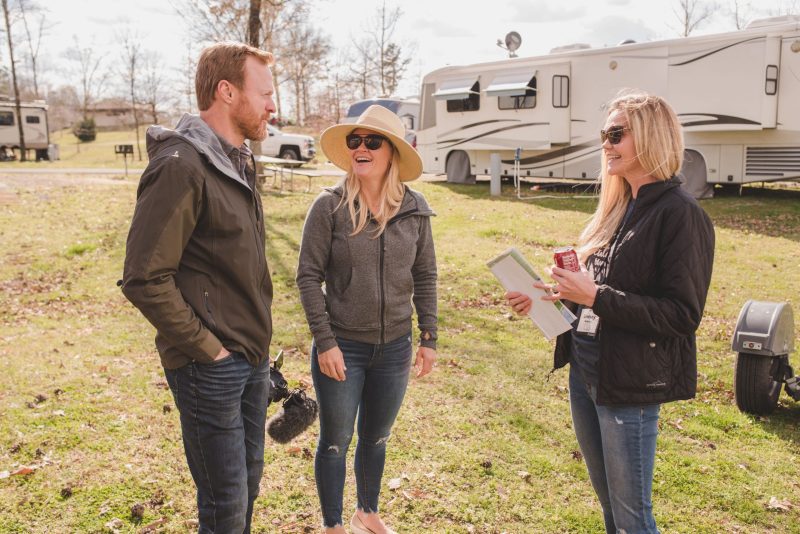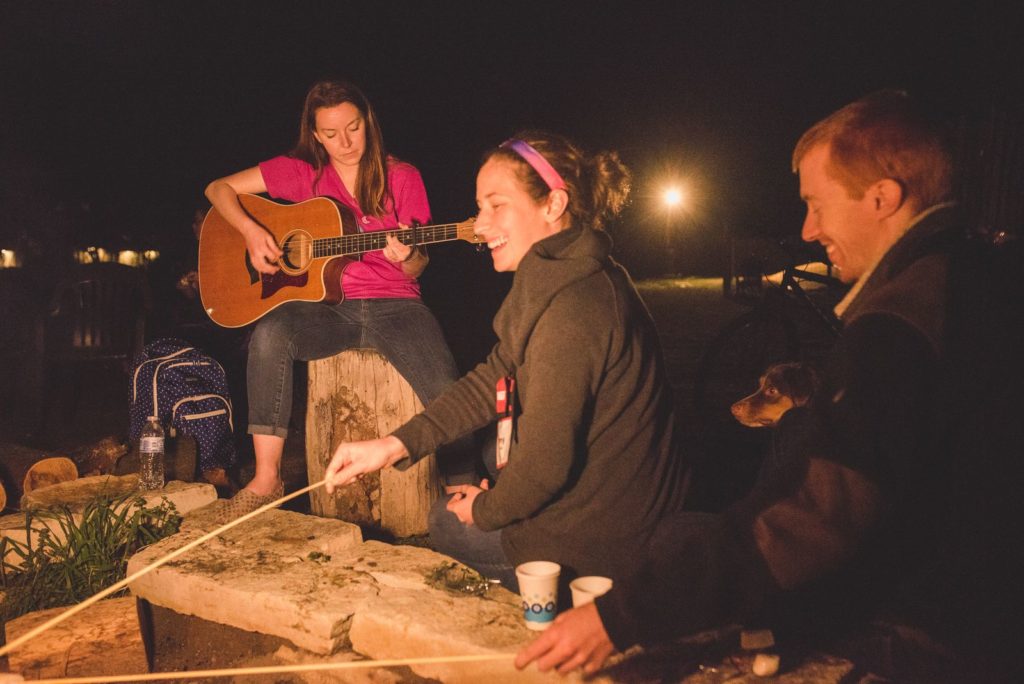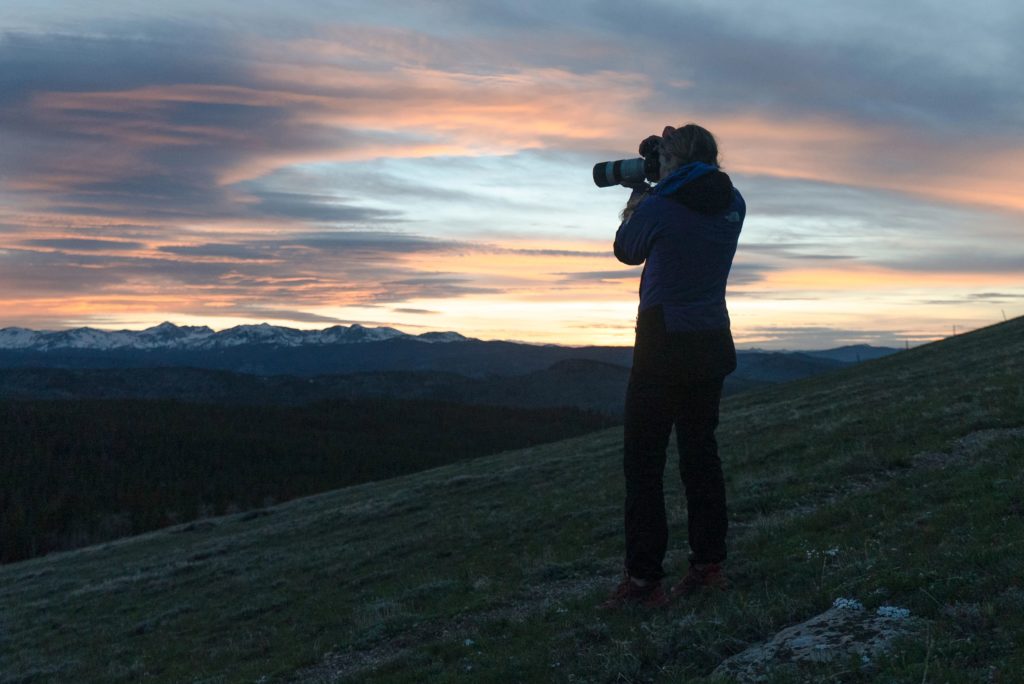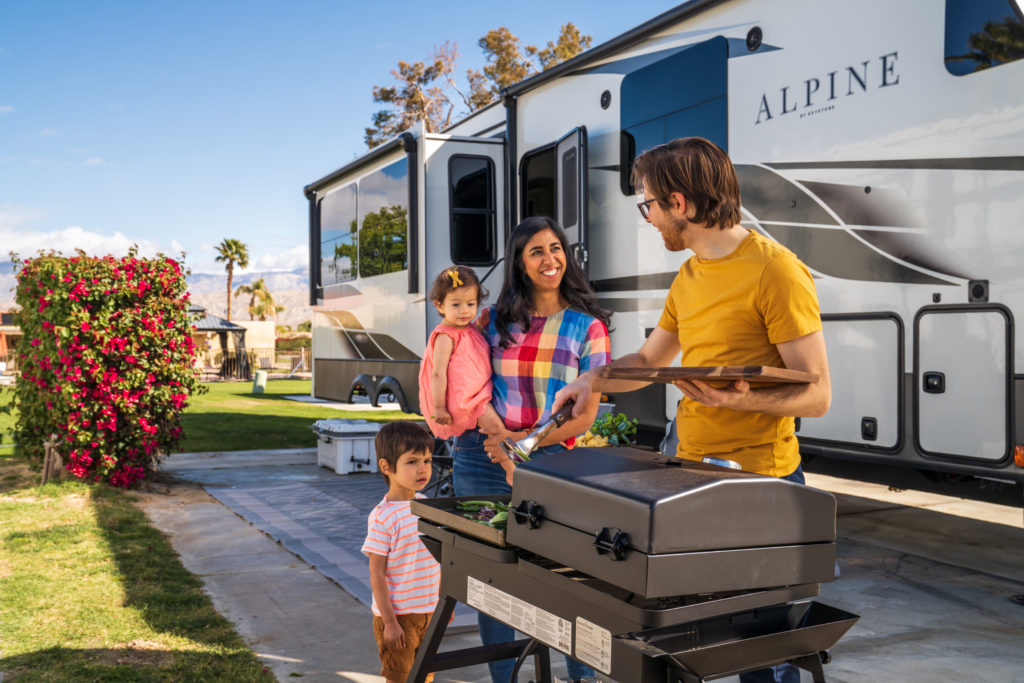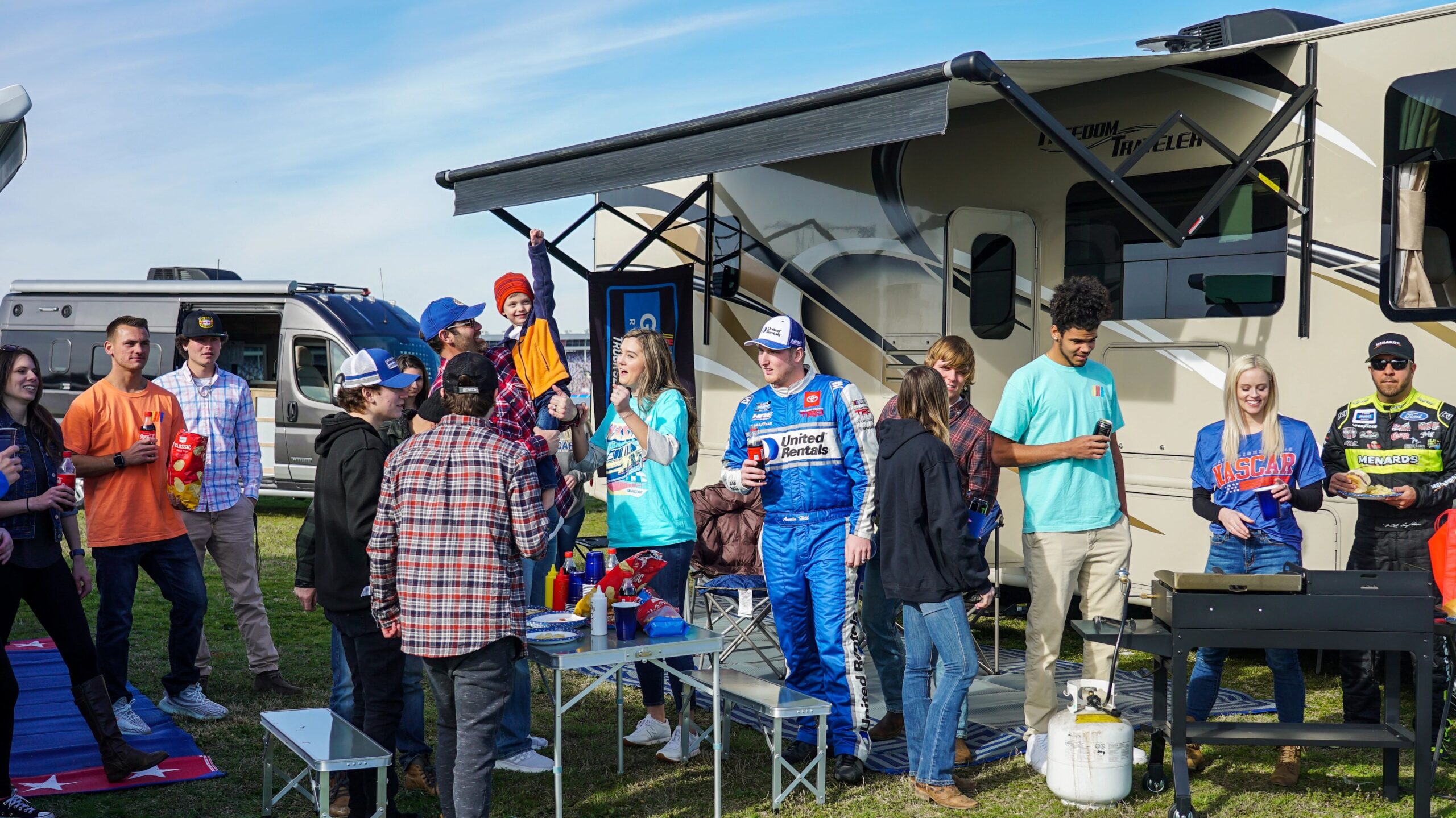
12 Creative Ways to Make Extra Money at Your Campground
With over 40 million people RVing regularly, campgrounds can be incredibly profitable.
The best way to increase revenue is by boosting occupancy. But what are some alternative ways to make money at your campground?
We connected with several campgrounds and found twelve creative ways to diversify your income and make more money at your RV park.
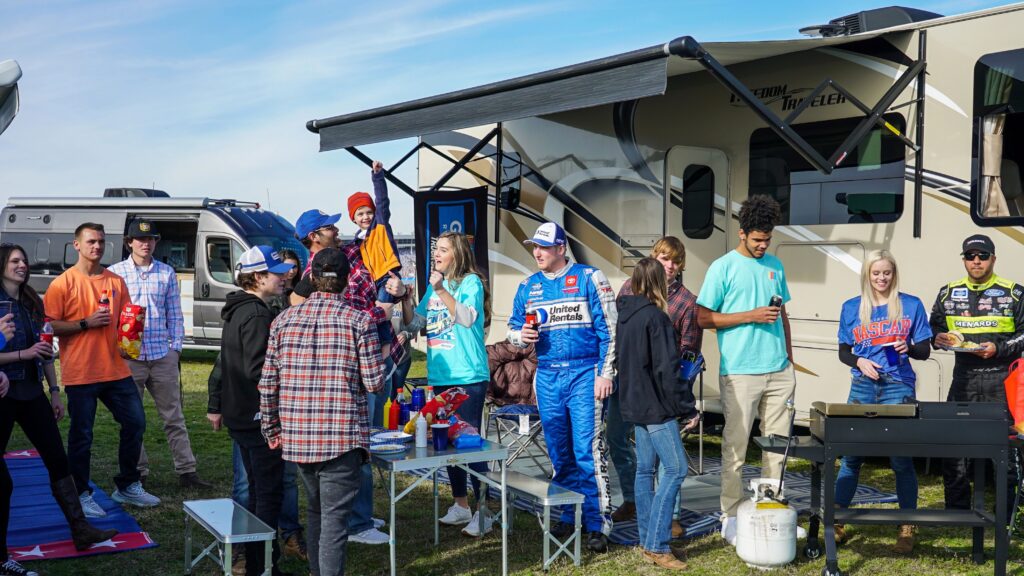
Earn a little extra money at your RV park
1. Vending Machines
On average, a single vending machine earns $76 a week, or over $300 a month. With that, a vending machine is about a $2,000 investment, so it pays for itself within a year.
It’s a reasonably easy income stream to add to your park, especially if strategically placed–-near a pool, for example.
2. Laundry
One campground owner reported he profited more on laundry than he did from his campsites! He was the only laundromat nearby and offered multiple machines for guests and local residents to use.
After multiple calls to repairmen, he learned how to fix the units himself, making even more profit from this expected RV park amenity.
Creating a pleasant experience around laundry could be a small but simple way to add value to a guests’ experience. Consider adding another set of machines or offering a small table or countertop for folding clothes. Since most campgrounds charge between $1 to $2.50 per load, you’ll earn back your investment relatively quickly.
3. Pool pass
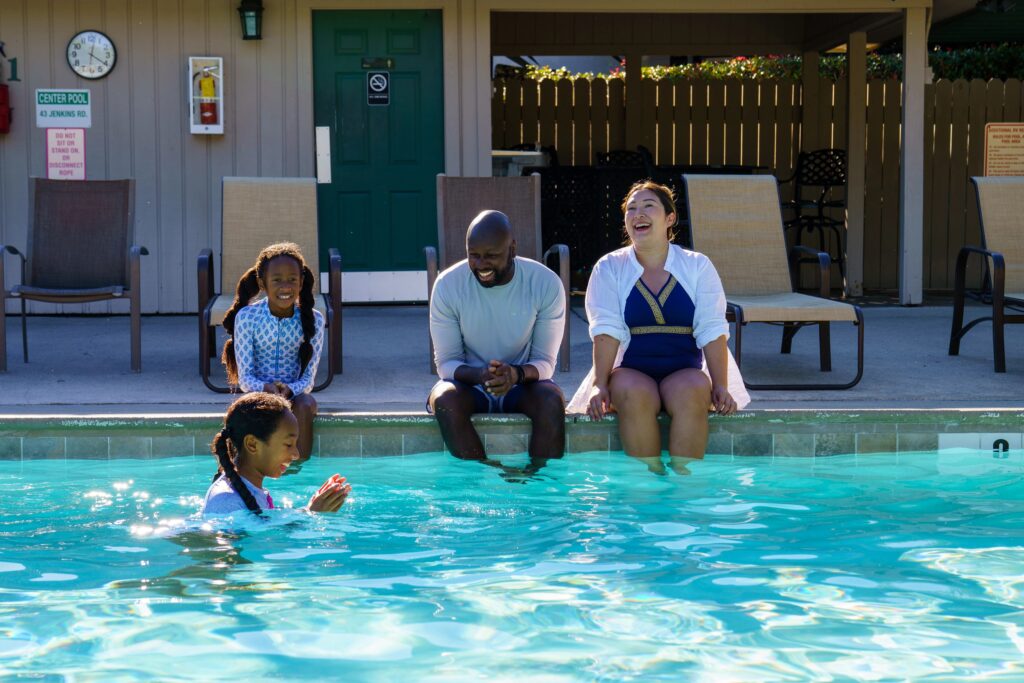
Have a pool? Consider offsetting some of your property costs by opening it up to the local community or friends visiting campers. For example, Jackson Lake Lodge lets guests swim for free and sells community passes for $5 a day–or $50 a season.
Earn a little more money at your RV park
4. Restaurants and food trucks
Restaurants or concession stands add local flair to your park. Not only can they be an added element of hospitality for guests, but they could be an additional marketing tool for your park when opened to the community.

More and more parks are adopting new options when it comes to dining. Foodtruckoperator.com says that even the federal government “is looking to modernize campgrounds at national parks, and is considering allowing the private sector to run the parks to free up park staff for other tasks.”
Remember, though, that running a restaurant in conjunction with your campground is extra work. If you’re looking for a more straightforward starting point, food trucks have relatively simple permits and can be an easy way to partner with a local vendor to split profits.
5. A good camp store
Retired camping and outdoor industry expert Gary Forster says, “There are many reasons to have a [camp] store. The first is that people expect it.”
Keeping a few essentials on hand goes a long way, whether it’s a quick bite, laundry detergent, firewood, or even RV parts like water or sewer hoses.
We’ve also received feedback from RV parks claiming a fair amount of success selling branded materials and products from local artists or businesses that reflect the local community. Specifically, T-shirts and camping mugs are a couple of the top sellers. You may even offer produce, pictured above, as part of a small farmer’s market.
6. Events
Campgrounds can still offer plenty of low-cost and profitable events for campers.
Consider:
- Grilling or cook-off competitions (where people pay to enter and taste the food)
- Outdoor movie nights (with proper licensing, which you can find help with by joining a campground association)
- Fall festival complete with a carnival and hayrides
- Tournaments for youth sports
- Crafts (especially for kids)
- A trail of lights during the holiday season
Plenty of potential guests unfamiliar with camping might be willing to try it out if you provide the right incentives to connect with your park.
For more ideas, RVShare has a list of over 80 activities campgrounds can offer.
7. Wi-Fi
If you’re looking to add immediate value to your campground, start with quality wireless internet. Even if guests want to unplug and experience nature, many will still expect access to Wi-Fi.
Millennials are 73 percent more likely to find themselves taking a trip and, subsequently, working from an RV this year.
While providing decent Wi-Fi is a must, offering a high-speed connection could be a source of profit. A 2018 poll revealed 66 percent of guests would be willing to pay a daily rate for faster internet. And, likely, this number will only go up as more millennials become full-time RVers. Paying extra for premium service will be expected.
Make passive and profitable returns at your RV park
8. Rentals
While rentals generally come with high startup costs, they can also bring high margins. Consider implementing any of these items:
- Jeeps
- Dune buggies
- Four-wheelers
- Snowmobiles
- Mountain bikes
- Kayaks/canoes
- Grills
- Pool items (floaties, toys, life jackets, etc.)
The most significant considerations with rentals are your insurance policy and repairs, which can add to your park’s expenses.
9. Experiences
Campgrounds can offer more than just camping.
Here are a few creative ways campgrounds have used their space:
- Brewery or Distillery
- Wedding venue
- Zoo or Wildlife Rescue
- Kayaking or Canoeing
Campgrounds that succeed in repurposing their space take advantage of features unique to their property: lakes and rivers, scenic overlooks, flat or hilly landscapes. What does yours offer?
10. Partner with local tourism companies and restaurants
Partnering with local businesses is a great way to make commissions and passive income for your campground. See if any local tourist attractions will give your campers discounts for visiting or if they will give you a referral credit for sending campers their way.
11. Event rentals
Especially during shoulder seasons, find imaginative ways to take advantage of potential event space. Consider renting out your clubhouse, pavilions, etc. for:
- Reunions and get-togethers
- Corporate retreats
- Weddings
- Kids camps and field trips
- Conventions and conference
- Concerts
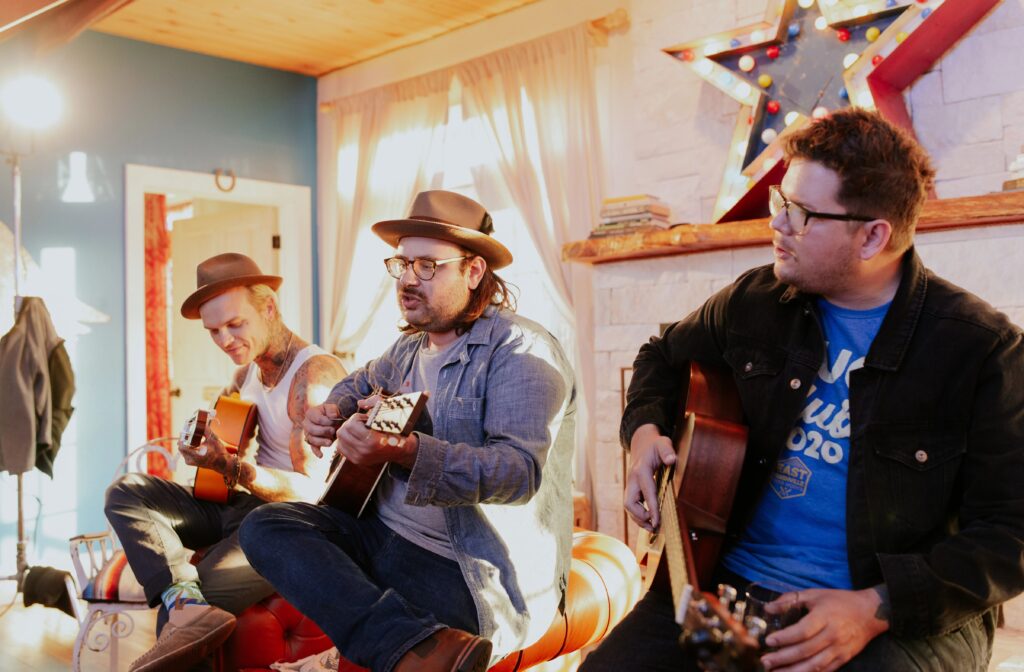
12. Yield management
One of the resources that Good Sam Campground Solutions provides its parks is yield management (or dynamic pricing).
This allows campgrounds to accommodate guests during both peak and shoulder seasons. A camper can go online, get a quote, and make a reservation without you having to get involved.
Yield management allows you to charge more or less based on demand, like charging $70/night on holiday weekends and $50/night in the shoulder season.
On average, our campgrounds have saved 300 hours of administrative work annually through dynamic pricing and online reservations.
Putting it together
Finding creative ways to make money at your RV park doesn’t have to be an overwhelming effort. Consider your campground and what you could realistically implement without draining your resources.
Then,
- Make a little money by adding vending machines, laundry services, and pool passes.
- Make a little more money by offering restaurants or food trucks, a well-stocked camp store, interactive events, and quality Wi-Fi.
- Make passive and profitable income by offering rentals, unique experiences (weddings, wildlife, breweries, etc.), partnering with local businesses, event rentals, and yield management.
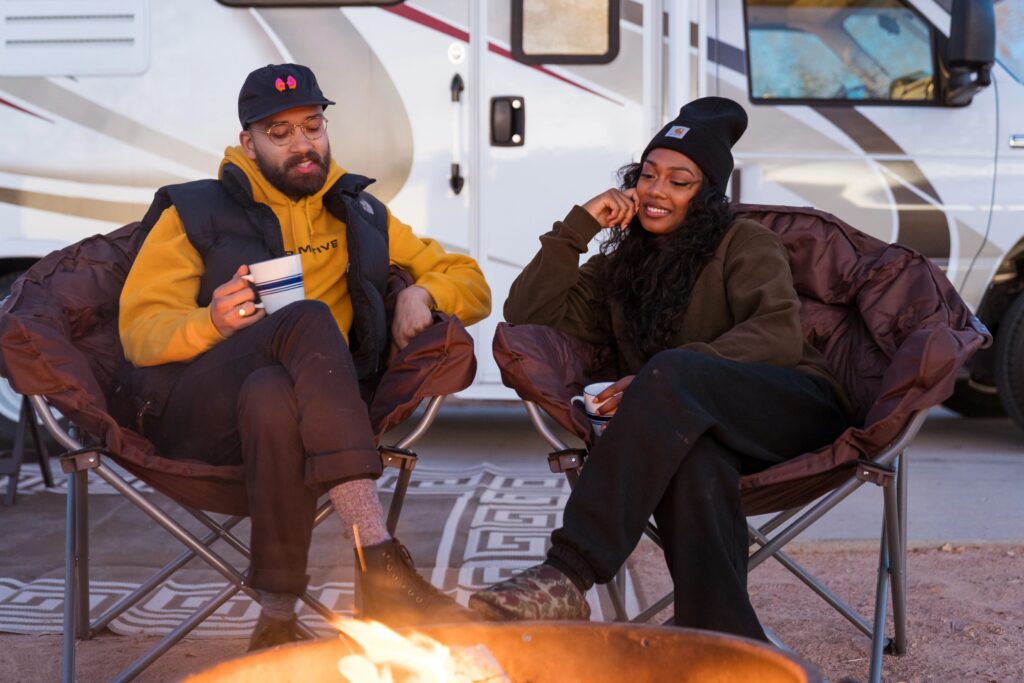
The simplest way to increase revenue
Online reservations are one of the easiest ways to bring income to your campground. Good Sam Campground Solutions brings RV parks a 25 percent annual increase in reservation volume. Request a demo today!
